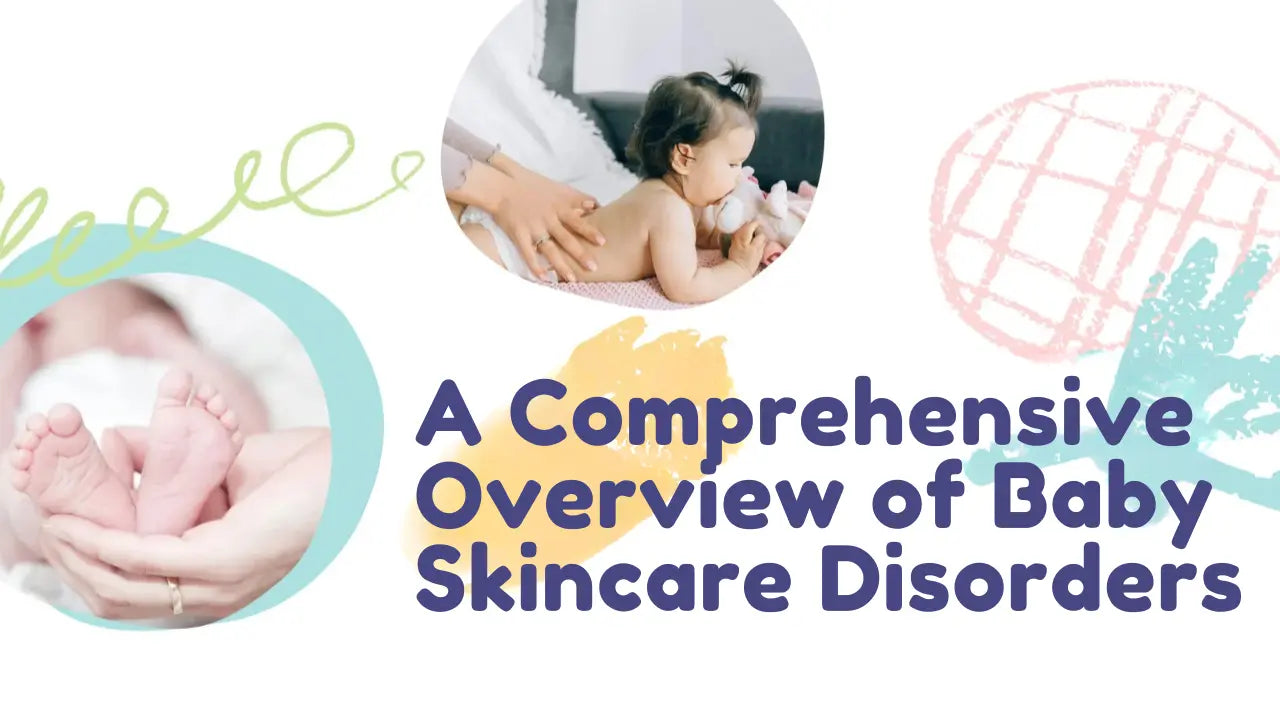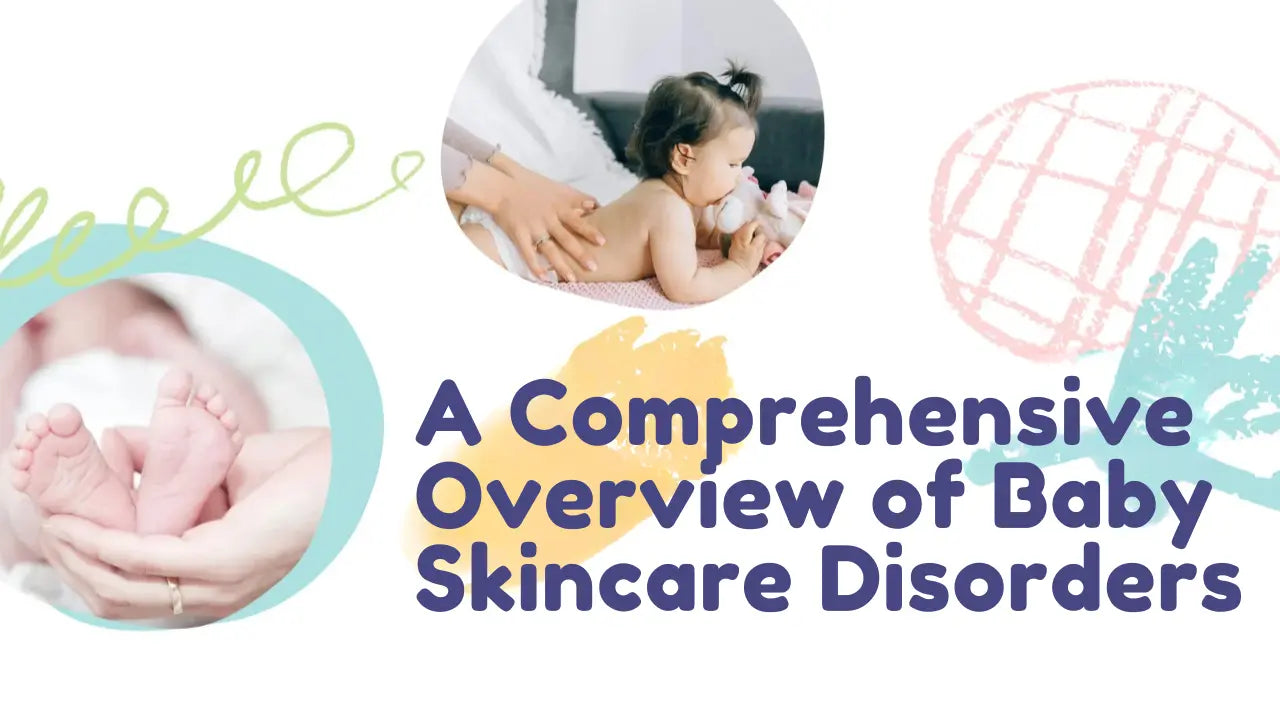As parents, ensuring the well-being of your baby is a top priority. One crucial aspect of your little one's health is their delicate skin. Baby skincare deserves your attention, as it is susceptible to various conditions and disorders. In this guide, we'll explore common baby skin disorders, their causes, and how you can provide the best care for your baby's skin.
Understanding Baby Skin
Baby skin is incredibly soft and sensitive, making it prone to a variety of issues. From birth, a baby's skin is adjusting to the outside environment. Factors like temperature changes, moisture levels, and irritants can trigger skin problems.
Read More: How to Prevent Skin Issues For Babies
Common Baby Skin Disorders
- Diaper Rash: A frequent concern, diaper rash occurs due to prolonged exposure to wetness and friction. Regular diaper changes and using a barrier cream can help prevent this discomfort.
- Baby Acne: Many newborns develop small whiteheads or pimples, often on the face. It usually fades on its own within a few weeks.
- Cradle Cap: Characterized by crusty or oily patches on the scalp, cradle cap is harmless and typically resolves with gentle washing and brushing.
- Eczema (Atopic Dermatitis): Eczema causes dry, itchy patches that can be uncomfortable for your baby. Moisturizing and avoiding irritants are key to managing eczema.
- Heat Rash: Babies can develop heat rash in hot weather. Dressing them in light, breathable clothing and keeping them cool helps prevent this condition.
- Baby Psoriasis: Although rare, baby psoriasis can occur, causing red, scaly patches. Consulting a pediatrician is crucial for proper diagnosis and management.
Causes of Baby Skin Disorders
Baby skin disorders can arise due to various reasons:
Immature skin: A baby's skin is still developing, making it more sensitive.
- Environmental factors: Harsh weather, allergens, and irritants can trigger skin issues.
- Genetics: Family history can play a role in some conditions like eczema and psoriasis.
Read More : The Benefits of Using a Tummy Roll-On For Colic Relief
Caring for Your Baby's Skin
Proper baby skincare can go a long way in preventing and managing skin disorders:
Gentle Cleansing: Use mild, fragrance-free baby cleansers and avoid over-bathing.
- Hydration: Keep your baby's skin moisturized with a hypoallergenic best baby lotion.
- Clothing: Opt for soft, breathable fabrics and avoid tight clothing.
- Diaper Care: Change diapers promptly and use Best diaper rash cream as needed.
- Consult a Pediatrician: If you notice any unusual skin changes or persistent issues, seek professional advice.
Conclusion
Baby skincare is a vital aspect of your little one's overall well-being. Understanding common baby skin disorders, their causes, and how to care for your baby's skin can help you provide the best possible care. Remember, each baby is unique, so consult a pediatrician for personalized guidance on managing and preventing baby skin disorders.
Ensure your baby's skin stays as soft and healthy as possible by giving it the love and attention it deserves.




